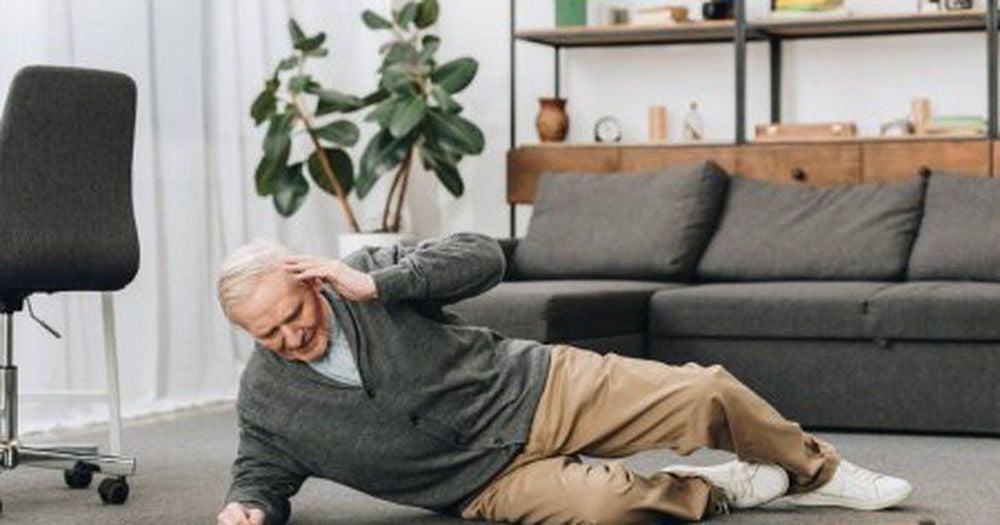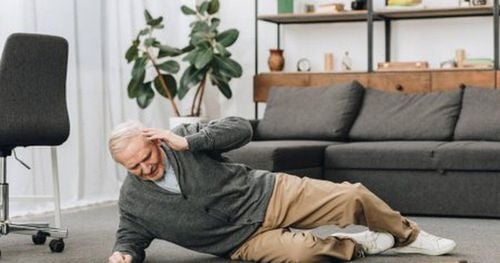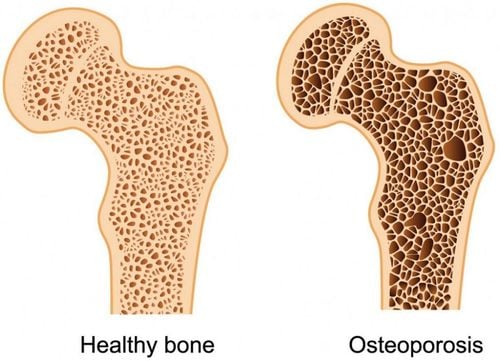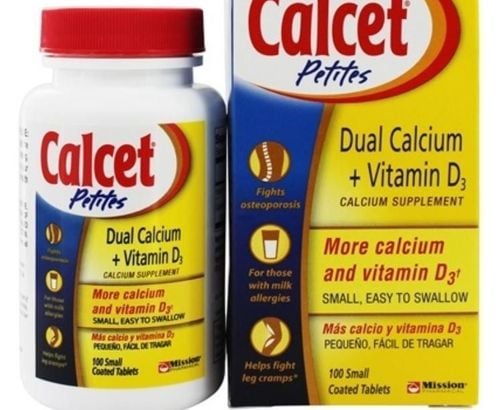This is an automatically translated article.
The article was written by Specialist Doctor I Vo Khac Khoi Nguyen - Department of General Surgery - Vinmec Central Park International General Hospital.According to a recent statistic in the United States, more than a quarter of elderly people (over 65 years of age) have experienced a fall and one in 10 of these patients suffered a fall injury. Among the elderly, falls account for about 60% of all trauma-related emergency room visits and more than 50% of injury-related deaths annually. The world population is aging and the number of elderly people is increasing.
Accordingly, the rate of falls among the elderly receiving medical treatment is increasing gradually. This will lead to a significant burden on the health system if we do not pay attention to the issue of fall prevention.
There are many risk factors for falls in the elderly such as vestibular disorders, orthostatic hypotension, impaired vision, lower extremity problems, and medication side effects. Few people realize that drug use is an important risk factor for falls in the elderly.
1. Drug use: Common in the elderly
Medication use is a common problem in the elderly in managing medical problems. More than 80% of elderly people take at least one prescription medication per day, and more than a third of elderly patients take five or more medications, according to one statistic.
According to data from the US Centers for Disease Control and Prevention (CDC), more than half of all older adults (53%) have used at least one medication with a fall-related side effect . This makes us realize that medication management plays an important role in preventing falls in the elderly.
Older women have a higher risk of drug-related falls than older men because women use multiple medications that can cause falls (57% in women vs 49% in men). Specifically, older women used more opioids (37% of women versus 33% of men) and benzodiazepines (19% of women versus 11% of men).
2. Medications that pose a potential fall risk
Treatment with multiple medications is an important risk factor for falls, especially in the elderly. Statistics show that using multiple drugs at the same time is associated with 67.9% of patients with a history of falls.
Thus, falls may occur as a direct result of the patient's underlying medical condition, or may be a side effect of certain medications, or a combination of the two.
Drug classes associated with increased risk of falls include: antihypertensives, sedatives, hypnotics, anti-anxiety and antipsychotic drugs, antidepressants, muscle relaxants, and hypoglycemic agents blood and non-steroidal anti-inflammatory drugs ...
Of these, the group of neurotropic drugs used to treat mental disorders, anxiety, depression, pain and sleep disorders directly affects the nervous system. central and may cause side effects that increase the risk of falls.

Cholinesterase-inhibiting psychotropic drugs are associated with increased rates of syncope, bradycardia, falls, and hip fractures in the elderly with dementia. The above findings highlight this class of drugs as a potential risk factor for falls. These risks should be carefully weighed and discussed with patients and caregivers.
Thus, psychotropic drugs are those that pose a high risk of falling. Other drugs such as antihypertensive drugs, non-steroidal anti-inflammatory drugs, diuretics ... cause less risk of falls.
3. Be careful when using drugs
Medication is a risk factor for falls. However, it is important to consider the rationale for medication when treating medical conditions in the elderly. Physicians who decide to discontinue or reduce medication for the purpose of falling prevention must also exercise extreme caution.
Because the drugs themselves used to treat the underlying diseases of the elderly are very necessary. Because once the underlying disease is not well controlled, it can also be the cause of falls in the elderly. For example, joint pain in the legs can cause gait disturbances, body balance, and falls.
Therefore, each drug should be carefully weighed for the benefits and risks of discontinuing or continuing use in the elderly.
For psychotropic and narcotic drugs, dose reduction and gradual discontinuation significantly reduce the risk of falls in elderly patients. However, extreme caution and patience should be exercised when discontinuing these drugs in patients, especially when they have been on long-term use.

The problem of reducing benzodiazepine prescribing leads to an immediate reduction in benzodiazepine use but not a reduction in hip fractures caused by falls. It is possible that abrupt discontinuation of benzodiazepines has led to the need for an alternative sedative. This highlights the importance of individualized and individualized drug management.
Falls in the elderly require multifactorial interventions, especially in those at high risk. Three key issues need to be improved in elderly people at high risk of falls including increasing muscle strength and balance, controlling medication use, and creating a safe living space at home for older adults. . If these three problems are solved synchronously, it is possible to reduce the rate of falls in the elderly by about 25%.
In summary, falls are a common event in the elderly. Physicians should counsel and educate elderly patients and their families about fall prevention measures. In particular, doctors also need to consider drugs prescribed for the elderly that can cause falls, avoid drug-drug interactions and minimize side effects. The scientific and rational use of drugs can significantly reduce the risk of falls in the elderly.
Vinmec International General Hospital is one of the hospitals that not only ensures professional quality with a team of leading medical doctors, a system of modern equipment and technology. The hospital provides comprehensive and professional medical examination, consultation and treatment services, with a civilized, polite, safe and sterile medical examination and treatment space.
Please dial HOTLINE for more information or register for an appointment HERE. Download MyVinmec app to make appointments faster and to manage your bookings easily.














